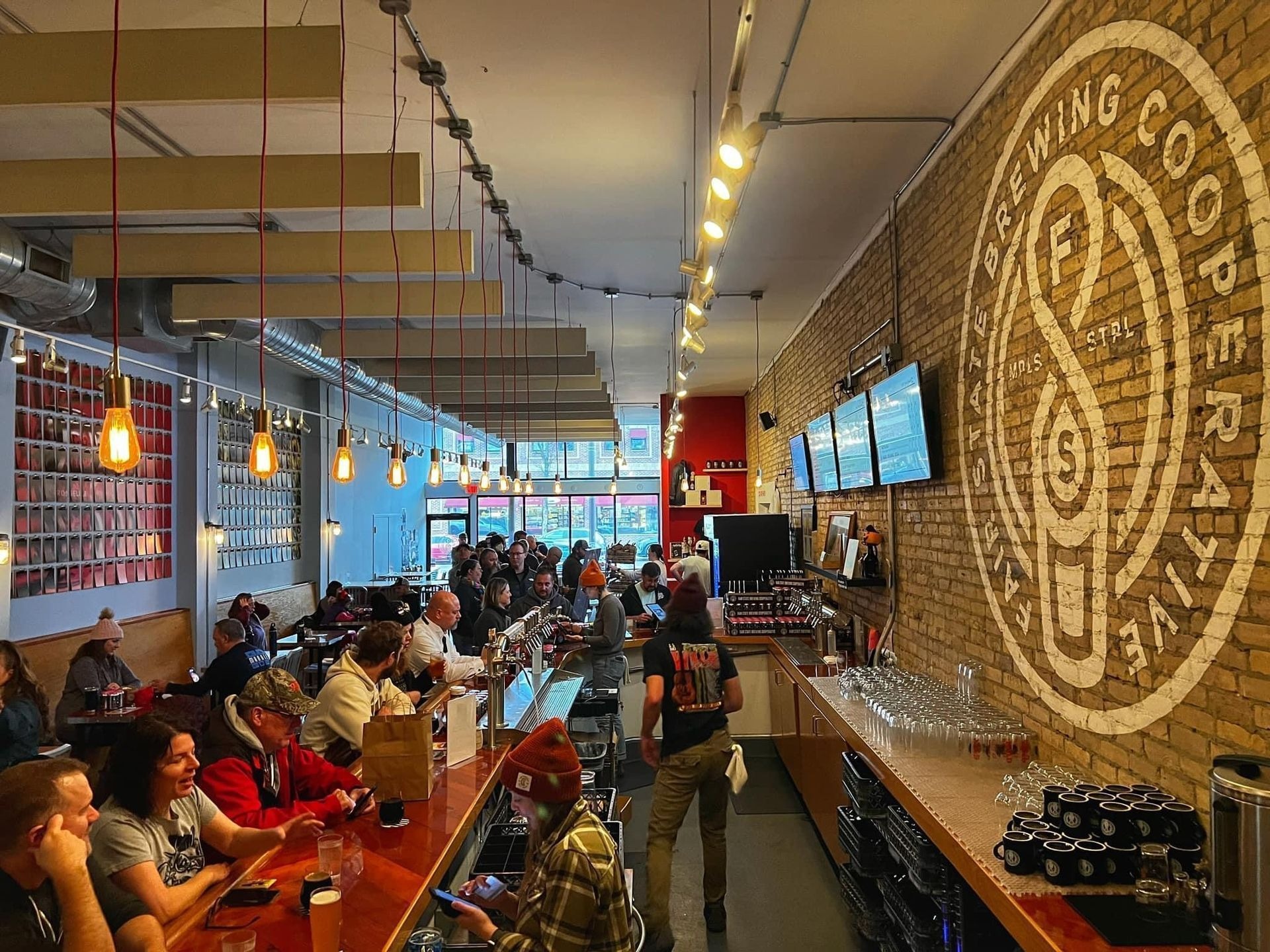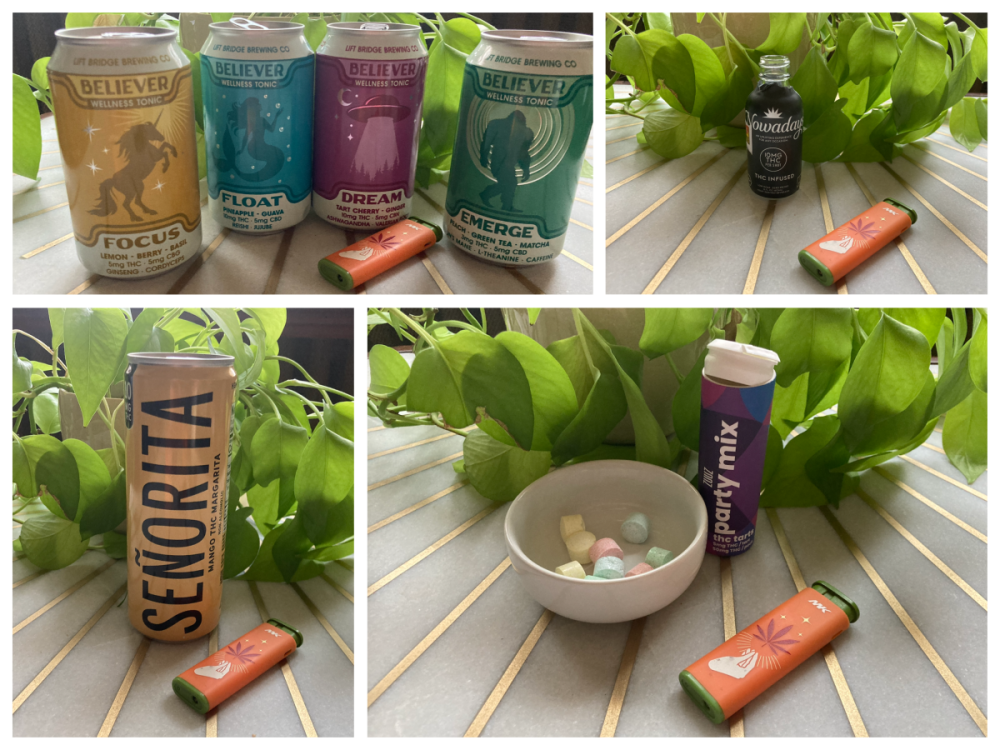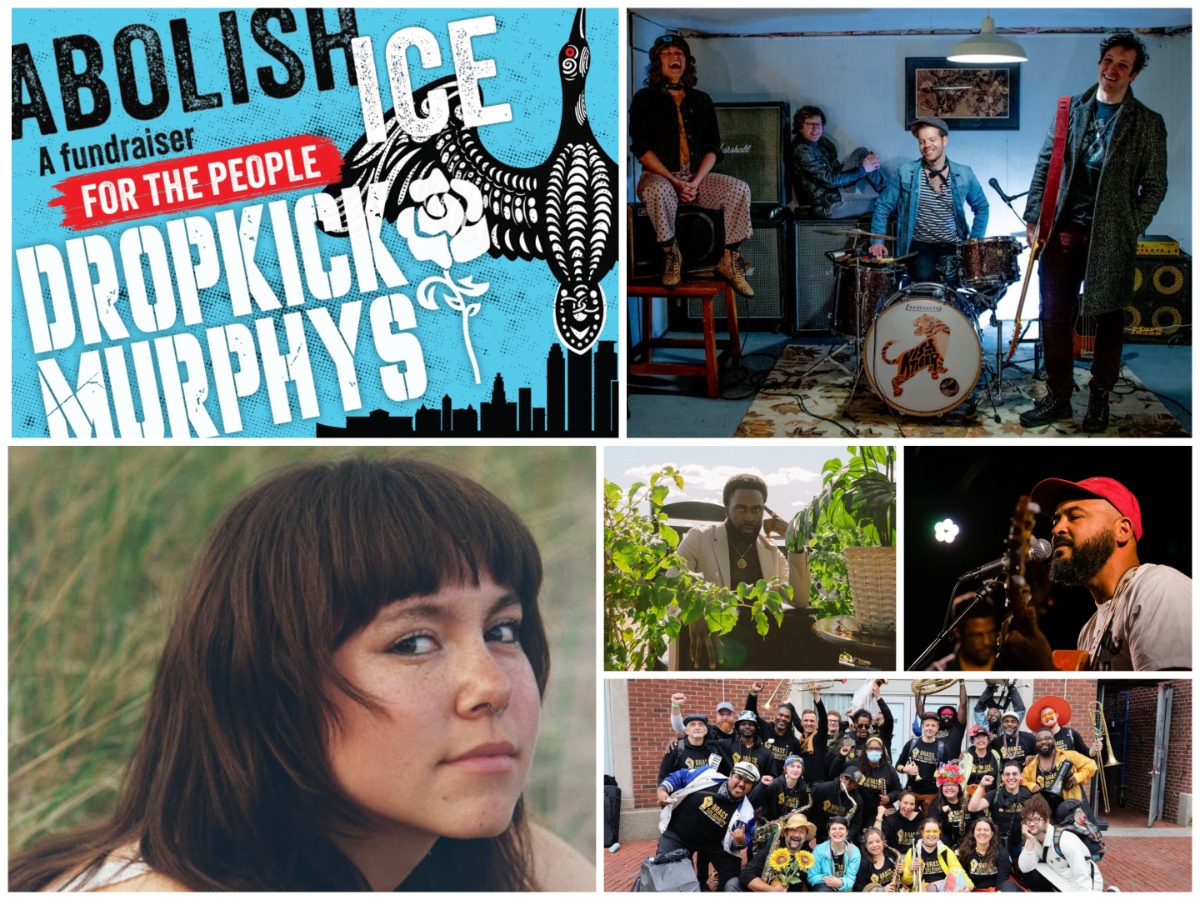Racket will set aside its famous impartiality for a brief moment to editorialize: This stinks!
We're big fans of Fair State Brewing Cooperative, the northeast Minneapolis brewery that emerged in 2014 with a cooperative ownership model and, in 2020, became the nation's first unionized microbrewery; beyond the feel-good biz practices, Fair State also happens to make killer beer and THC drinks. And, despite filing for Chapter 11 bankruptcy protection this week, its leaders pledge to keep plowing ahead. (The co-op reported $3 million in assets vs. $5.1 million in total liabilities.) Expect to see Fair State's taproom still open at 2506 Central Ave. NE, plus its beverages still available at hundreds of Twin Cities liquor stores and bars. Management reports there are "no plans" to layoff any workers; an all-member meeting is scheduled for Wednesday evening to discuss bankruptcy details.
We caught up with Fair State co-founder/CEO Evan Sallee for details about how Fair State got to this precarious point and what the path forward might look like.
Take me through how we got to today.
The simple reality is the pandemic dug a large hole for us, and we've really just tried to pull every lever we can to get out of it without taking this step. It has just been a long, hard slog this whole time. We just found ourselves in a position this quarter where this is the unfortunate step we have to take in order to ensure the longevity of the business, make sure we can keep producing high-quality beer, and employing our people.
Could you ballpark how bad profits dipped during the pandemic and how much they've recovered since?
The number that I've got off the top of my head: Our taproom took about a 25% hit almost the second the pandemic hit. The taproom is obviously really core to our business, to our community. That was just an enormous hit. All the bars and restaurants that have been longtime supporters of us had to shutter, and that was roughly 35% of our distribution business at the time. Couple that with enormous supply-chain disruptions: Our main can supplier cut off breweries of our size; we ended up having to source cans from as far away as Sri Lanka, and that's just one of the disruptions we've seen.
Have things picked up post-pandemic?
Yes and no. It continues to be a really, really competitive challenging market for beer and breweries. Consumer demands are changing, inflation hasn't helped anything, and these supply costs continue to be an issue. It's certainly not easy. At Fair State, thanks to our hemp business Chill State, we did some substantial growth in 2023, and we're forecasting more growth in 2024. The unfortunate reality is it just wasn't enough; we didn't have enough of a cushion to withstand the normal hiccups that happen in the course of business.
So the Chapter 11 filing will consolidate debt for you. You're going to be open for the foreseeable future, hopefully for a very long time, which is great. For the average Fair State customer, what changes will they notice?
The hope is they won't notice any changes. We're going to keep making excellent Fair State beer and hemp beverages; we're going to keep the taproom open and keep supplying liquor stores and bars. We're the first unionized microbrewery in the country, and the first co-op brewery in the state. We think that's a really special thing, and we think we have a really solid path to profitably, and to exit this successfully with our core business intact.
I'm glad you mentioned your really unique and cool biz model. I'm just imagining the Star Tribune comment section being like, "Of course those communist shitheads can't run a business!" What role, if any, did the model play into what's happening?
[Laughs.] Right, right. There is one concrete challenge we faced. During the pandemic, the federal government developed a lot of different relief plans for businesses, and we were able to take advantage of some of those like PPP. I will say it can be very hard to raise capital as a cooperative—that's a challenge we've always had as a business, especially in a pandemic. We really, really relied on government relief in order to make it through, but unfortunately because we're a co-op, basically, we have to paper file our taxes and there was a historic backlog in IRS processing.
Because of that, we were not able to receive nearly $2 million in low-interest disaster loans from the government that we should have been eligible for. That program, Economic Injury Disaster Loans, ran out of money before they were able to process that tax return. We 100% would not be in this situation if we were able to get that relief that a great many other Minnesota businesses and breweries were able to take advantage of. I literally spent months on the phone trying to get that done.
People, of course, have been talking about "the craft beer bubble" for over a decade, and you are anecdotally seeing more stories about closures. Does your story have anything to do with that, sort of, meta-narrative?
Even talking about a "craft beer bubble" has been a pet peeve of mine. Craft beer is not a bubble; bubbles are a special thing where prices are inflated, and disconnected from the underlying market. Whereas the growth of craft beer has been driven by a consumer demand revolution. There are a lot of breweries competing for limited consumers, but that does not a bubble make. At the same time, it's really challenging out there for a lot of our local breweries.
Generally, if you could encapsulate it, what's your analysis of the current Minnesota craft beer market?
In many ways, it's almost as strong as ever. We've got a ton of talented brewers making better beer than we've ever seen in this state. But we're facing a lot of economic pressures, so it can be really hard to run a brewery. It's tough out there for a lot of folks. I think what we're doing is important, and I want to continue to do it for a long time.






